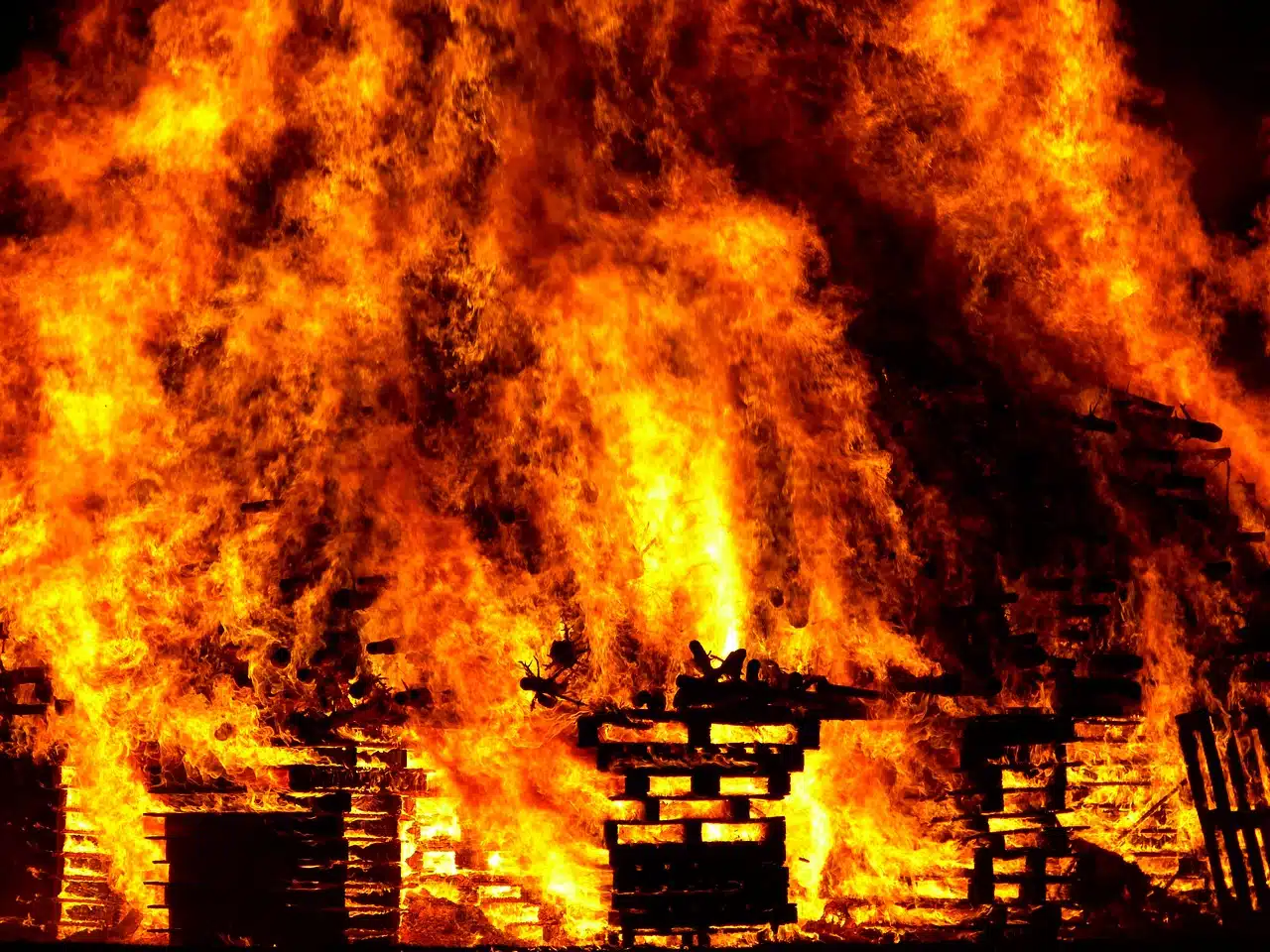
A conflagration is the outbreak of a war conflict.
Conflagration is a violent agitation of a nation or people . This is the use that appears most frequently. It is a word that originated in the Latin conflagratio .
Outbreak of a conflict
Conflagration implies the outbreak of a conflict . Many times the concept is associated with a war between two or more countries.
For example: “The tension between both nations continues to escalate despite the efforts of the mediators and there is fear of a conflagration,” “The socialist government believes that, in the event of a conflagration, it will receive the support of its neighbors,” “We must avoid a conflagration since the cost for our people could be very high.”
In the first example, the speaker expresses the fear that the mediation to calm the two opposing nations will not have an effect, but that a war will break out between them. We continue with the declaration of a government that is sure that it would receive support from the closest countries if it found itself in the middle of a war. Finally, a piece of advice to think very carefully before giving rise to a conflagration, to avoid the price that the people would have to pay in a case like that.
Fire
Conflagration is also a synonym for fire . Although the Royal Spanish Academy (RAE) in its dictionary indicates that this meaning is out of use , it can still be found in numerous journalistic articles: “The firefighters, after several hours of work, managed to extinguish the conflagration registered in the national park” , “The conflagration started due to a short circuit in the main bedroom of the house” , “A family had to leave their home to escape the conflagration that continues to advance throughout the forested area of the region” .
It is important to mention that the verb conflagrate , from the Latin conflagrāre , refers to setting fire or inflaming . Therefore, there is a direct link between said action and the meaning of conflagration as a fire. Furthermore, since setting fire and inflaming can have a symbolic meaning (associated with an inflaming of spirits), the idea of conflagration is also used as a disturbance or commotion.
Etymology of conflagration
The etymology of the term conflagration takes us to the Latin conflagratio, conflagrationis , which originally meant "to be on fire, to be consumed by fire." Another possible meaning is "the eruption of a volcano", as we find in the work of the Roman historian Gaius Suetonius Tranquilus , when he talks about the eruption of Vesuvius. But it also serves to refer to any great disturbance that alters spirits in a considerable way, such as a catastrophe, a war or a flood (we find this use in the works of Quintus Septimius Florente Tertulliano and Lucius Anneeus Seneca ).

The oldest meaning of conflagration is "great fire."
It is interesting to note that the first meaning that we pointed out at the beginning of this article ("breakout of a conflict") has not always been valid in our language, but rather it is a metaphorical one; On the contrary, for many years, this word was only used to denote a large fire.
At a structural level, in the composition of the word composition we find a noun ending in a suffix: we begin with the already mentioned verb conflagrate , to which -ción is attached, which serves to form nouns that denote action and effect (such as being, «action of setting fire or effect of flames »). But, in turn, this verb can be broken down into the prefix con- ("together, in its entirety") and the Latin verb flagrāre ("to be on fire, to burn"). The latter gave rise to other terms and phrases, such as being flagrante and in fraganti , both widely used today.
